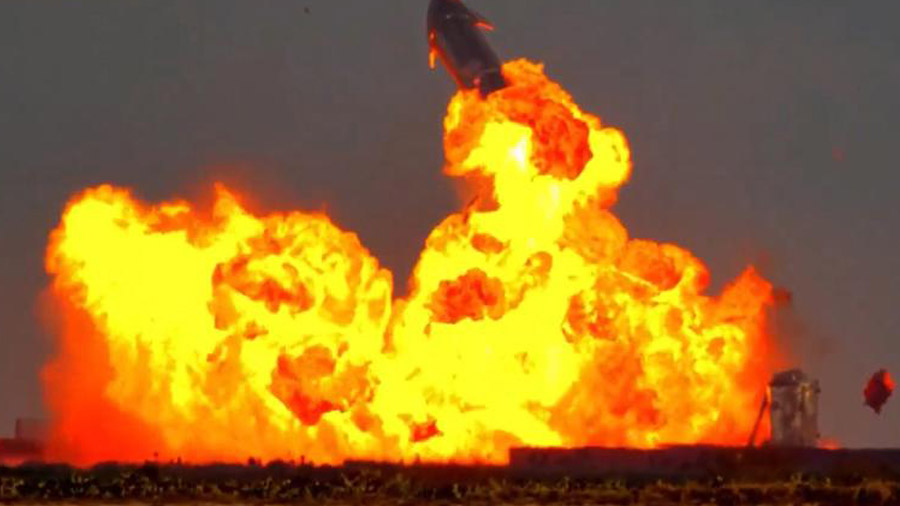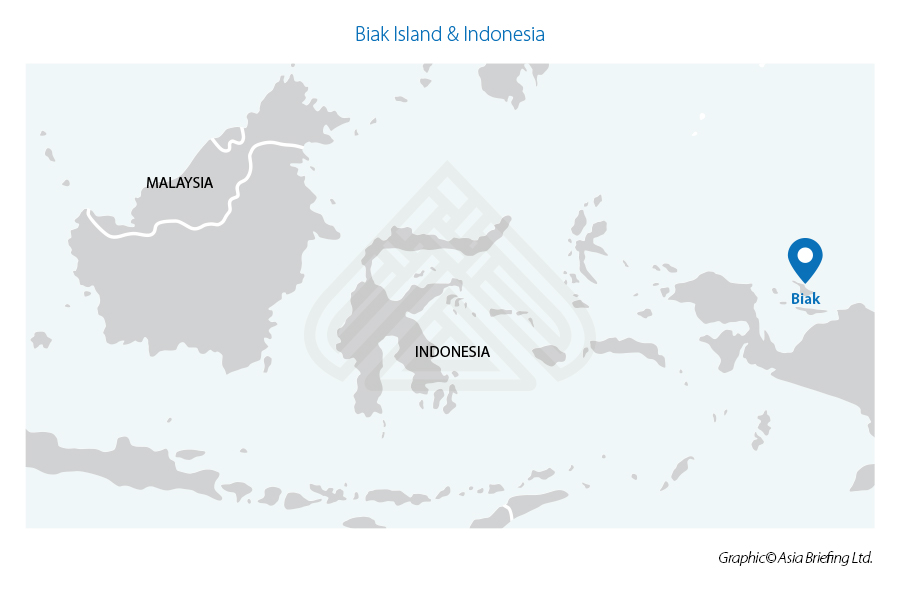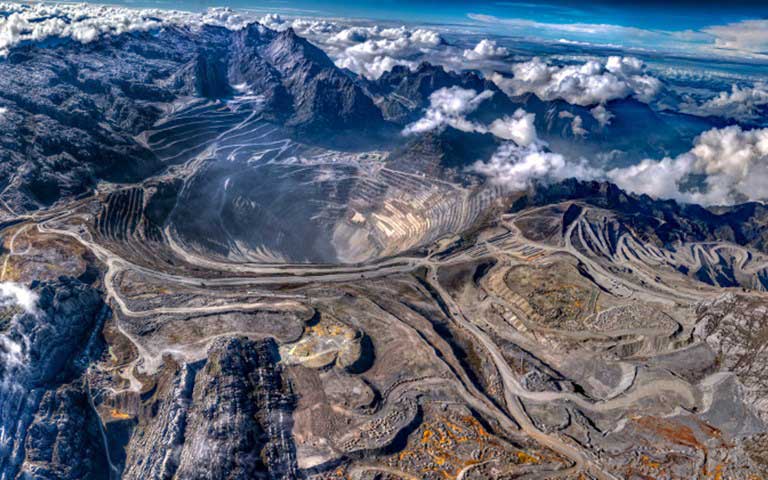Indonesia’s Biak Island Not A Good Example of The US Belt & Road Alternative

By Chris Devonshire-Ellis
- De-Forestation, Pollution, Environmental Damage and Military Suppression Not A Good Advert For US Investment In Indonesia
The US company SpaceX has been in discussions with the Indonesian Government concerning development of Indonesia’s Biak Island, as a rocket launch site and for mining of copper and nickel, two of the most important metals for rockets as well as the long-range batteries used in Tesla’s electric vehicles (EV). Both SpaceX and Tesla are US companies with strong ties to the US government and military. They are managed by Elon Musk.
Biak is part of Indonesia’s Papua province, faces the Pacific Ocean, and its location, one degree below the equator, is ideal for launching low-orbit satellites for communications, with less fuel needed to reach orbit. Its proximity to reserves of natural resources also makes it a prime candidate for a launch site. SpaceX plan to launch 12,000 satellites by 2026 to provide cheap high-speed internet through internet service Starlink.

The Indonesian President, Joko Widodo was told by Musk that Tesla would offer a “giant contract for a long period of time if you mine nickel efficiently.” Nickel is a key component for manufacturing EV batteries.
Comparisons though with China Belt & Road Initiative criticism are apt. The local Government is all for the deal, with United States businesses as clients. They have stated that “The Papua provincial government considers that the building of the spaceport in Biak will make the Biak Numfor District a hub and bring positive economic impacts for the regional government and the local community. The Indonesian parliament also sees that the building of Biak Island as a ‘Space Island’ will bring multiplier effect to the surrounding community.”
But Biak Islanders are fiercely opposed, arguing a space launchpad will drive deforestation, increase the military presence, and threaten their future on the island with some fearing they will be forced from their homes. Protests against the American investment have resulted with immediate arrests, according to locals quoted in the Guardian.
A coalition of Indonesian environmental non-government organizations, JATAM, has argued that expanded mining will escalate deforestation, pollute a proposed UNESCO marine world heritage site, and endanger the health of local people. Nickel mining has been shown to be carcinogenic and to pollute ground waters.
The Grasberg mine on nearby Papua’s mainland is the world’s second largest copper mine and is partially owned by the US mining company Freeport-McMoRan Inc of Arizona. The company has been accused of funding the Indonesian military to secure its reserve through militaristic oppression of the native West Papua people.

The Grasberg Mine, Papua, Indonesia
Increased production there is likely to add to the 80m tonnes of mining waste it dumps into surrounding rivers each year, worsening environmental damage.
These are almost the same types of criticisms that have been levelled against China and many of its Belt and Road Initiative projects, instead this time, it appears to be US investment, businesses, and global operators about to create a big mess in another country – but with US corporations to benefit. Is what is good for the United States Goose, equally good for the Chinese Gander? Or do different rules apply?
Related Reading
About Us
Silk Road Briefing is written by Dezan Shira & Associates. The firm has 28 offices throughout Asia, and assists foreign investors into the region. For strategic advisory and business intelligence issues please contact the firm at silkroad@dezshira.com or visit www.dezshira.com





